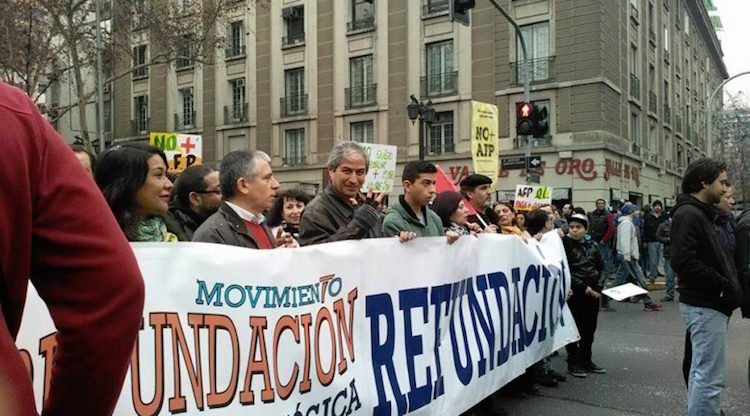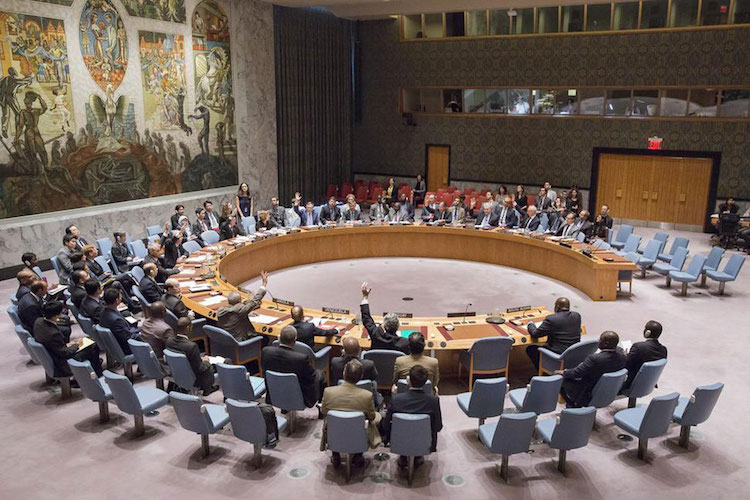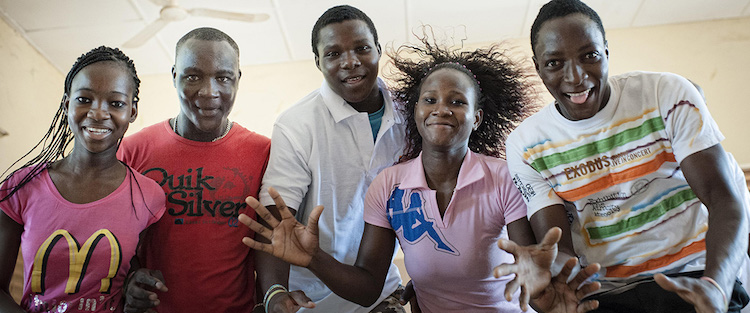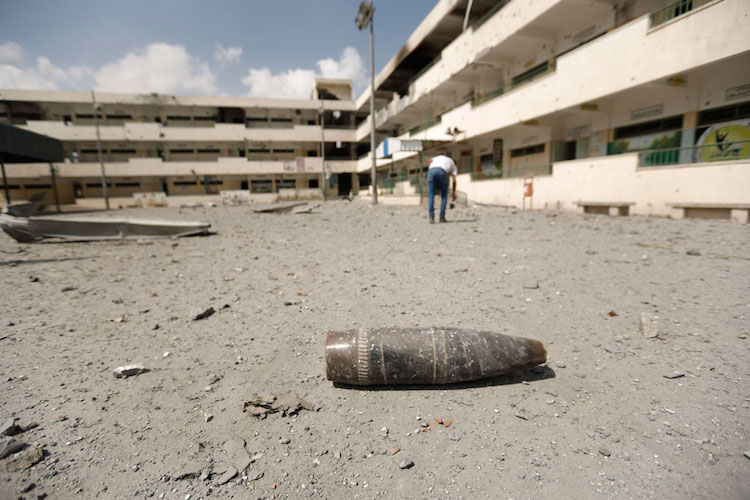Von Morteza Raissi BONN (IDN) – Die Lage für Saudi-Arabien zur Lösung des Konfliktes in Jemen und herabsetzen des Problems im Nahen-Osten ist eng geworden. Es ist für die Saudis peinlich ohne sichtbaren Erfolg aufzugeben und so Platz für den gefährlichen Rivalen Iran zu machen. Man versucht die erreichten Koalitionen beizubehalten. Am 2. Oktober dieses […]
How Manyonga Rid Himself of ‘Demons’ for Silver Long Jump
NEW YORK | PRETORIA (IDN | GIN) – Luvo Manyonga was overjoyed with the silver long jump medal awarded him at the Rio Olympic Games on August 14. But the track and field star from Mbekweni township in South Africa has soared over obstacles more than once.
Manyongo grew up in a single parent household in a township still struggling to provide regular services of water, sanitation and electricity. Drugs, guns and violence are never far from the world of young people without jobs or prospects. A few years ago, Manyonga was on the verge of becoming another statistic of this cycle of life.
Complacency in Nigeria Blamed for Polio’s Return
NEW YORK | ABUJA (IDN | GIN) – A year after Nigeria was removed from the polio-endemic list, two cases have been reported in the northern Borno state, where the terrorist Boko Haram still controls the territory.
The eradication of polio, reported in 2015 by the World Health Organization, was called an “historic achievement” by the Global Polio Eradication Initiative, a public-private partnership leading the effort to eliminate the disease.
As recently as 2012, Nigeria accounted for more than half of all polio cases worldwide. Since then, a concerted effort by all levels of government, civil society, religious leaders and tens of thousands of dedicated health workers resulted in Nigeria successfully stopping polio.
Thursday’s Date with Calls for a Fairer Chile
Viewpoint by Pía Figueroa*
SANTIAGO (IDN) – Every year, as they have been doing since 2011, students in Chile take to the streets each Thursday, demanding a free and good quality education system.
They are increasingly being joined by their parents – tired of paying for expensive schooling which is certainly the most expensive in the whole of Latin America – and teachers who leave work to join the students with a call for proper definition of the teaching career.
UN Security Council’s South Sudan Resolution Faulted
By Jaya Ramachandran
NEW YORK (IDN) – Two of the five veto wielding members of the Security Council, China and Russia, and two from among the ten non-permanent ones, Egypt and Venezuela, abstained from the resolution renewing on August 12 the mandate of the UN Mission in South Sudan (UNMISS) until June 30, 2017, authorizing the expansion of peacekeeping forces and stressing the priority of civilian protection in its mandate.
The Council adopted a U.S.-drafted resolution that also threatened to impose an arms embargo on South Sudan if the government blocks the deployment of a robust force of 4,000 troops.
Singapore’s 1st Olympic Gold Props Opponents of Foreign Talent
By Kalinga Seneviratne
SINGAPORE (IDN) – The stunning victory of 21-year-old Singaporean swimmer Joseph Schooling in the 100m butterfly at the Rio Olympics on August 12 has reignited debate about importing foreign sporting talent to raise the profile of local sports, especially in the international arena.
It was the tiny island nation’s first ever Olympic gold medal and Southeast Asia’s first Olympic Gold in swimming.
Schooling beat his childhood idol and perhaps the greatest swimmer of all-time Michael Phelps of the United States as well as Commonwealth Games champion Chad Le Clos of South Africa and the 33-time European champion Laszlo Cseh of Hungary. All three of them tied for silver medal while the young Singaporean took the gold with a new Olympic Games record.
UN Turns to World’s Youth for Achieving 2030 Agenda
By J Nastranis
NEW YORK (IDN) – As UN Secretary-General Ban Ki-moon’s second term comes to an end on December 31, 2016, he has intensified efforts to focus on the concerns and aspirations of world’s youth, urging them to lead a global drive to break the patterns of the past and set the world on course to a more sustainable future.
“Young people are directly affected by the tragic contradictions that prevail today: between abject poverty and ostentatious wealth, gnawing hunger and shameful food waste, rich natural resources and polluting industries,” Ban said in his message on International Youth Day, celebrated annually on August 12.
Africa’s Civil Society Faces Up to Hostile Governments
By Kingsley Ighobor*
NEW YORK (IDN | Africa Renewal) – A Liberian women’s peace movement led by 31-year-old Leymah Gbowee did something extraordinary in July 2003 to force Liberian warlords to sign a peace agreement that ended 10 years of a bloody civil war.
After months of fruitless negotiations, hundreds of women, members of Women of Liberia Mass Action for Peace, gathered at the venue of the peace talks in Accra, Ghana, and sat at the entrance to the conference hall. They looped their hands and vowed to stop the warlords from leaving the venue until they had reached a peace agreement.
Austria’s Ex-Chancellor UN Special Envoy for Youth Employment
By J Nastranis
NEW YORK (IDN) – Three months after being constrained to quit as Chancellor of Austria and head of the country’s Social Democratic Party, Werner Faymann has been named by UN Secretary-General Ban Ki-moon as a new Special Envoy for Youth Employment.
Faymann was Chancellor of Austria and chairman of the country’s Social Democratic Party from 2008 to 2016. He resigned both posts on May 9, 2016, after losing confidence from a considerable number of party members, after his party’s candidate and the candidate from its coalition partner were both eliminated in the first round of the presidential elections held on April 24, 2016.
Explosive Legacy of 2014 Conflict Continues to Hurt Gaza
By Bernhard Schell
AMMAN (IDN) – Two years after the Gaza conflict, paucity of sufficient funds is hampering a speedy clearance of Explosive Remnants of War (ERW) that pose a serious threat to the life and physical integrity of the population in the tiny self-governing Palestinian territory.
During the 2014 conflict, Israel launched more than 6,000 airstrikes and fired nearly 50,000 tank and artillery shells in the 51-day operation in Gaza, killing 1,462 Palestinian civilians, a third of them children.
The United Nations Independent Commission of Inquiry’s report on Gaza conflict, published on June 22, 2015, found that Palestinian armed groups fired 4,881 rockets and 1,753 mortars towards Israel in July and August 2014, killing 6 civilians and injuring at least 1,600.









